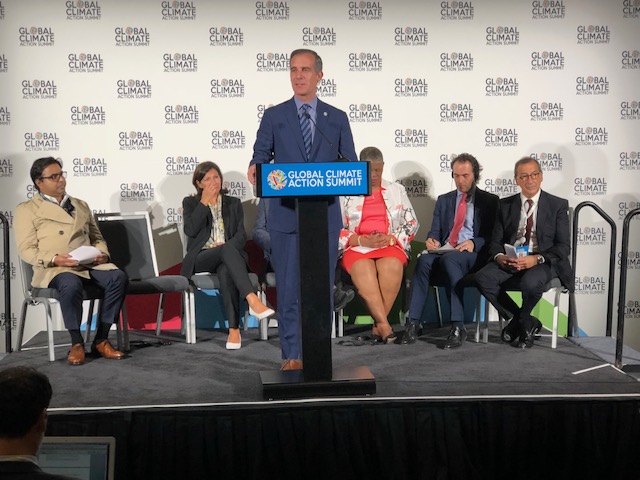
Signs like these at the Moscone Center were indicative of a climate action process that is necessarily moving beyond the inertia of national governments and unwilling presidents and prime ministers. Photo by Justin Catanoso
California Gov. Jerry Brown‘s Global Climate Action Summit in San Francisco was nothing less than a poke in the eye to presidents and prime ministers of developed nations — not simply the intransigent and denialist Trump Administration. In holding this three-day summit (Sept. 12-14, 2018), and making governors, mayors, business executives, tribal leaders and scientists the stars, a clear message was sent: if the goals of the Paris Agreement are to be met, it will take the determined efforts of subnational leaders to get it done.
Having covered four year-end United Nation’s climate summits, including the historic meeting in Paris in December 2015, and one mid-year summit in Bonn in 2016, I have come to see the gatherings as largely rhetorical exercises in caution, delay and international lack of will with the countries most responsible for global warming. What the California summit lacked in international authority, it compensated for in actual action being taken in cities, states, indigenous lands and at corporations in the fight against climate change. Caveat, as I report: it’s not nearly enough to peak global emissions or slow the rate of climate change.


